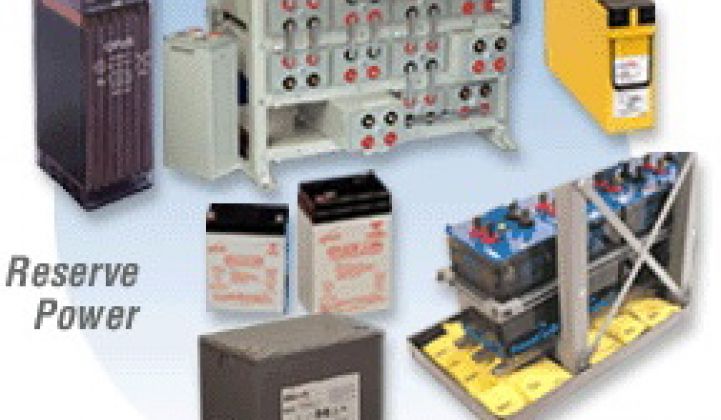PowerGenix, fresh on the heels of landing a deal to make its rechargeable nickel-zinc batteries for microhybrid vehicles, is now putting its technology into industrial applications via a heavyweight partner in the field. That would be EnerSys, one of a handful of global battery giants, which last week signed a licensing and product development agreement with the San Diego, Calif.-based startup.
It’s a pretty big vote of confidence for PowerGenix’s technology, which promises a long sought-after solution to the challenge of getting low-cost, high-performance zinc-based batteries that also recharge successfully. EnerSys spent about a year testing the technology, and intends to make them available to its customers worldwide, according to the announcement.
The deal also involves a “deep commitment to EnerSys as a partner,” with some exclusivity provisions in the agreement, according to PowerGenix CEO Dan Squiller. The company has raised about $61 million to date.
Squiller wouldn’t get into too many details about the new partnership's plans for bringing products to market beyond saying that the two are developing several products. The primary goal is to make nickel-zinc batteries as an alternative to nickel-cadmium and nickel metal hydride batteries for industrial applications.
PowerGenix’s nickel-zinc batteries can offer roughly 30 percent higher energy density and power density than nickel-cadmium, and also offer better power delivery characteristics due to the higher voltage per cell for nickel-zinc, Squiller said. They also offer much lower costs and improved performance on environmental metrics -- while cadmium is expensive and toxic, zinc is one of the earth’s most abundant elements.
Of course, nickel metal hydride batteries have been almost entirely supplanted by lithium-ion in consumer electronics applications. The same is happening in electric vehicles, where even long-time nickel battery holdout Toyota is starting to try out lithium-ion batteries for certain versions of its new plug-in Prius hybrids.
But lithium-ion is still expensive for many industrial battery applications. Lead-acid, the baseline battery chemistry for such applications, is cheap, but suffers from poor recharge characteristics, as well as weighing a lot more. Nickel-cadmium, despite its challenges, is a good fit for higher-value, high-demand applications. That could represent a $1 billion global market that EnerSys could target via PowerGenix’s nickel-zinc technology, Squiller said.
PowerGenix has been consistently moving up the chain of battery markets over the past few years. In 2010, it abandoned its quest to crack the consumer electronics market by selling rechargeable nickel-zinc AA batteries via retailers like Amazon and Fry’s Electronics, finding it impossible to compete against the commodity battery giants in that arena.
Instead, it made a shift to larger-format batteries for vehicle and stationary applications. Specifically, PowerGenix decided to target microhybrid or “start-stop” batteries for vehicles that turn off their engines while stopped in traffic or idling. While the technology is mainly being deployed in Europe, China could also be a huge growth market.
Early this year, PowerGenix formed a joint venture with Chinese development and construction company Chinese City Construction Corp. to produce batteries for microhybrid cars in China. Squiller said that partnership is proceeding apace, with a factory expected to be up and running by late 2012 or early 2013.
In the meantime, Squiller declined to say when EnerSys might start selling nickel-zinc batteries based on PowerGenix’s technology. The Reading, Pa.-based company is among a handful of giants including Johnson Controls, Exide Technologies and GS Yuasa, all of which will be competing for new markets like microhybrid and next-generation industrial backup.



